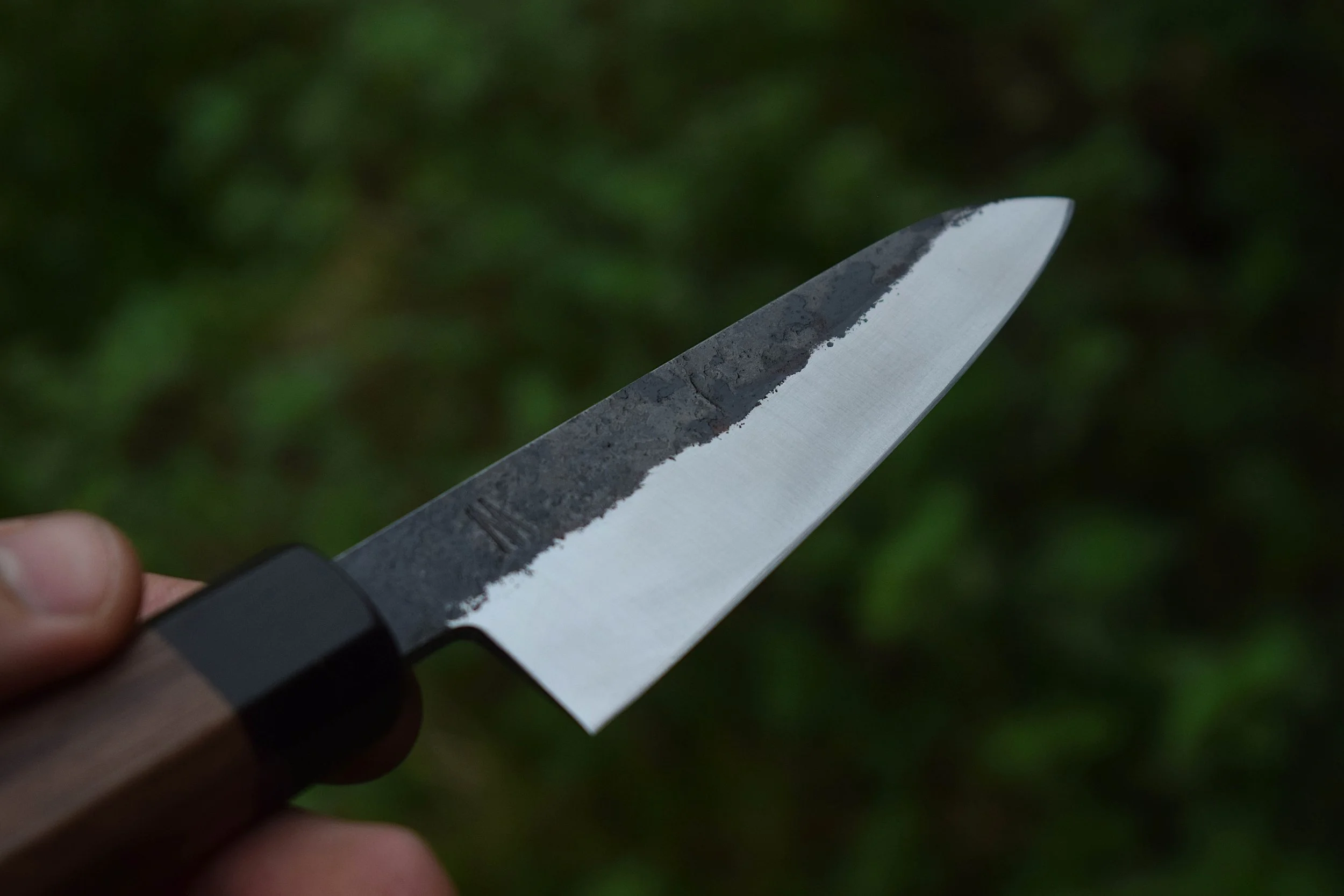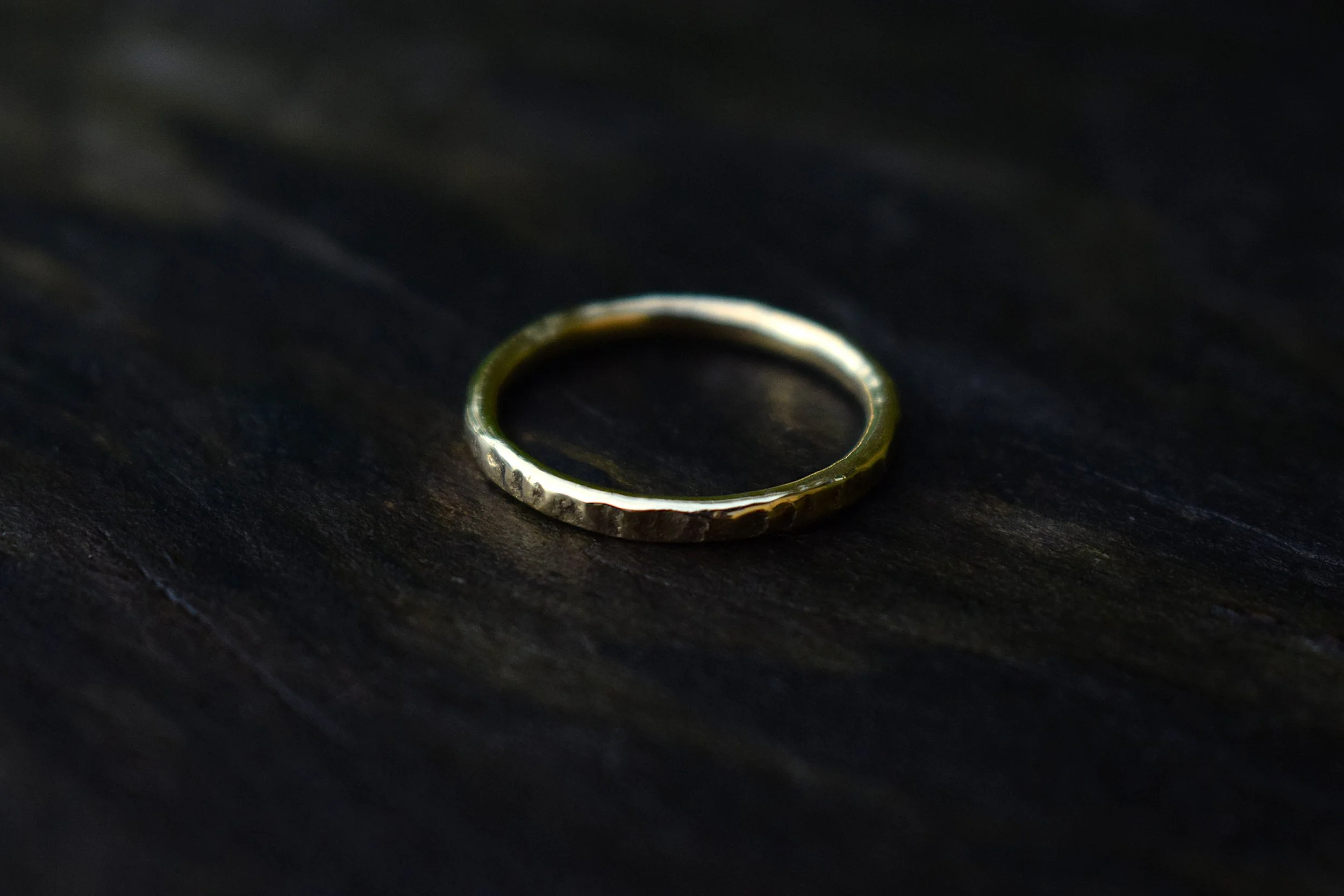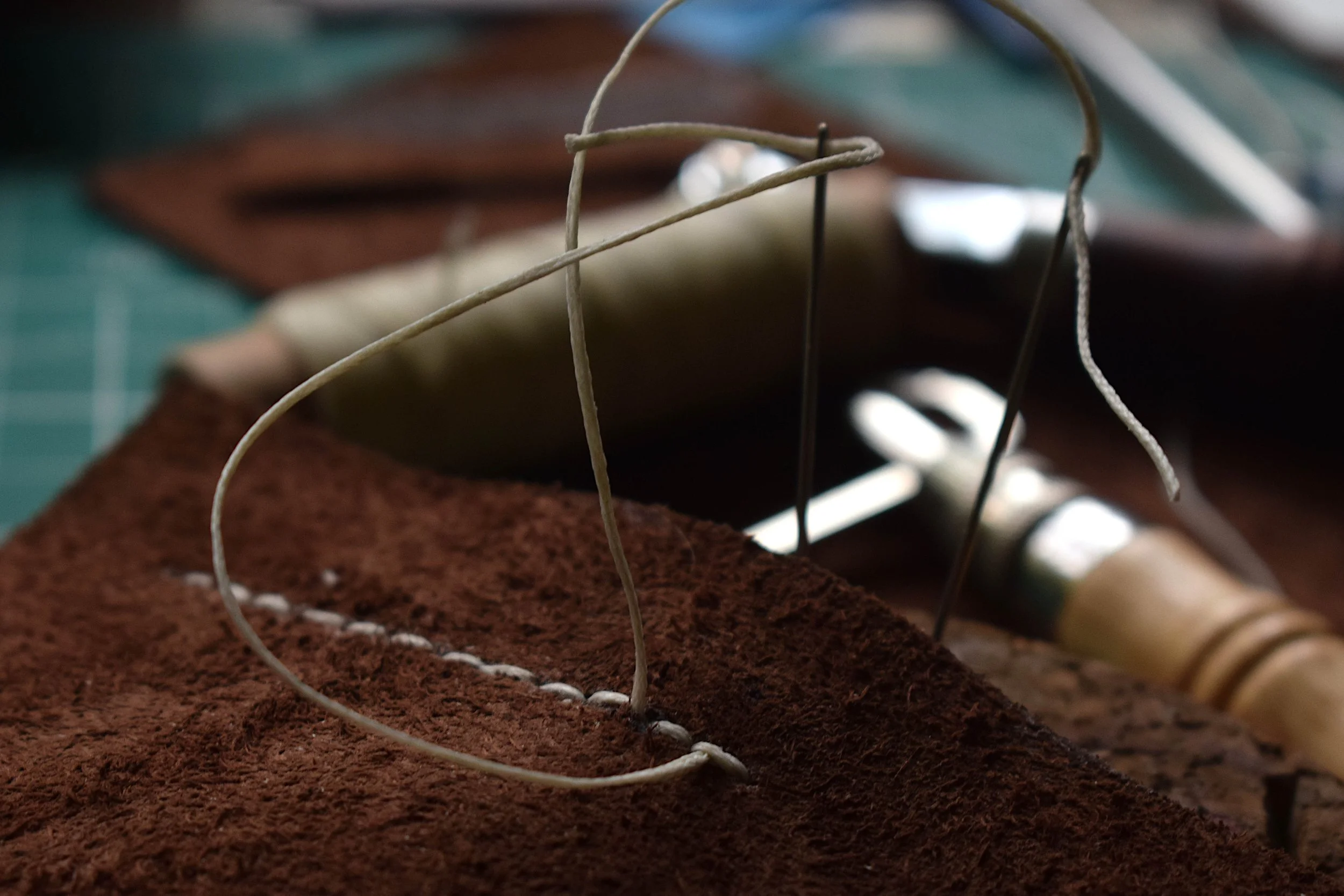
Services
Information
Basic knife care
Unless otherwise stated, all of my knives are made from high carbon steel of varying makeups. If you already own carbon blades you most likely have a personal way of taking care of them. However, if they are new to your kitchen or backpack then they do require a bit more care.
High carbon steels will rust overtime if not kept dry and regularly oiled as they do not have certain minerals in the steel which protect them from reacting with water. So, after use, gently wash your blade and dry, oil as needed. I recommend a food grade mineral oil for blades and either wood balsam or oil for handles if they are natural wood, however any food safe oil will work in a pinch (not olive oil as it goes rancid).
Over time, carbon steel blades will develop a natural patina. This will be unique to you and will reflect this in its colours and patterns depending how you use and care for your knife. It is generally observed by a change in colour from shiny silver to grey, amongst other colours. This is the metal reacting with acids in food ect, and is considered to be a slight barrier towards surface rust.
You will find that your knife will take, and hold, a very sharp edge. The make-up of the steel allows this but it means you must not use the knife for any other than its intended purpose. Bone, stone, metal and glass will chip the cutting edge, dropping the knife could result in tipping the nose or chipping the blade. This is generally the case with carbon steel vs stainless steel. You can achieve a much finer, sharper edge, but you lose some durability. A trade off that I personally think can be well worth it, but not always necessary. My bushcraft knives are forged much tougher than my Kitchen knives, but abuse of them will result in permanent damage to your blade.
Sharpening
For basic maintenance and sharpening, a simple double sided whetstone will suffice, 1000/3000 grit or similar. Or a ceramic honing rod and a careful hand will keep your knife in good condition. I advise against using ‘Knife Steels’ on carbon steel as they can potentially catch on the cutting edge and are far too aggressive. I advise against any cheap auto knife sharpeners in general. Even for cheaper knives, as they leave very bad edges and remove a lot of material.
Afterwards sharpening, you can gently polish the blade with a fine steel wool to remove stains and hone the edge on a leather strop for a much better result. (carbon steel knives).
Handle care
I’m not a believer in killing wood with stabilising methods, so you will find that all of my wooden knife and tool handles are made with untreated, natural wood that hasn’t been resin injected or varnished. This allows the wood to keep its natural lustre and characteristics, and over time the handle will become smooth with use, however if you notice any rough areas, a fine sandpaper will bring this back to a nice surface, as well as a regular coat of oil/wax balsam.
Knife handles will naturally get wet during use, so make sure to dry the whole knife after use and please do not soak the wooden handles in water, or expose to high heat. (do not attempt to cook your knife).
No care is needed for metal or synthetic handles.
My Guarantee
I take care with everything I make that it is of high quality, as I want these tools to last for the years to come, as I would with any tool I buy for myself. So, if under normal and intended use something I have made does break. Then I will offer you a refund and pay for it to be returned, fix it or replace it.
However, if you damage or break it by using it for anything other than its intended or stated purpose, or drop it. Then I cannot offer this.
If you have a damaged knife, of my own making or someone else’s, I can regrind blades, re-tip, or re-handle at an agreed upon cost. Please contact me for more information.
Please note
If you make a purchase of a knife, or bladed item, bushcraft, culinary, or tool, on my website ‘www.arashiforge.com’, then you are confirming that you are 18 years or older, I do not take any responsibility for anyone purchasing a knife under false representation of age for themselves or other persons. I may ask for proof of identification.

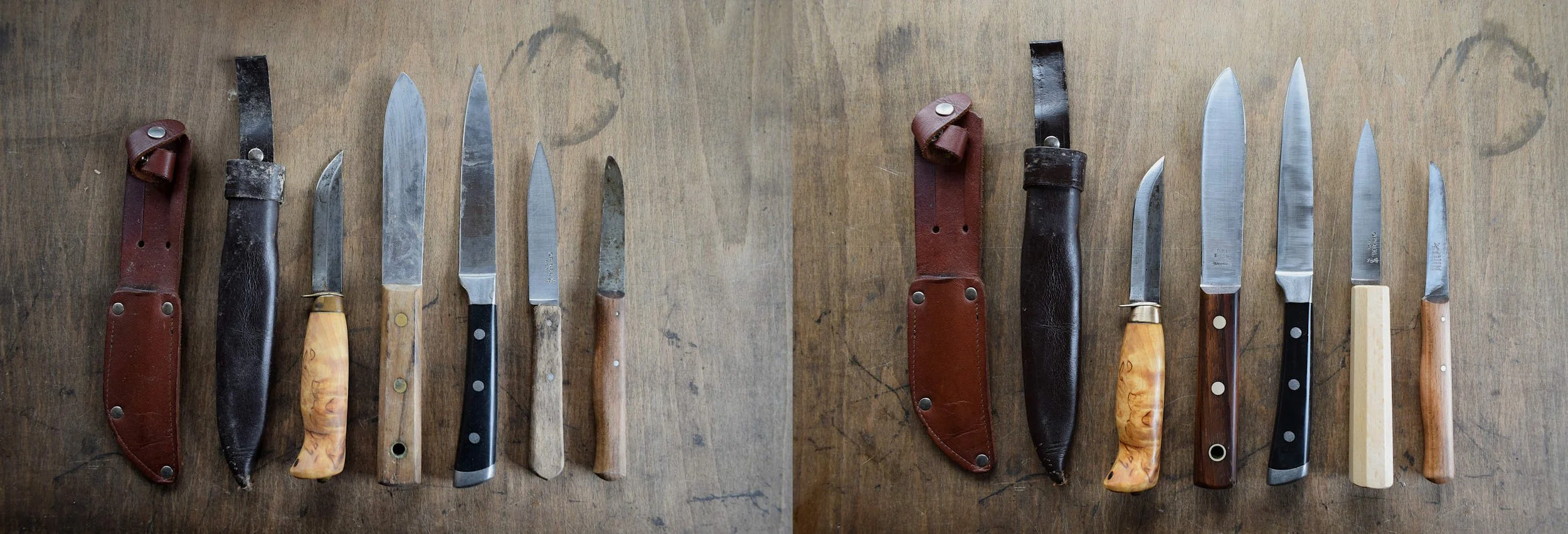
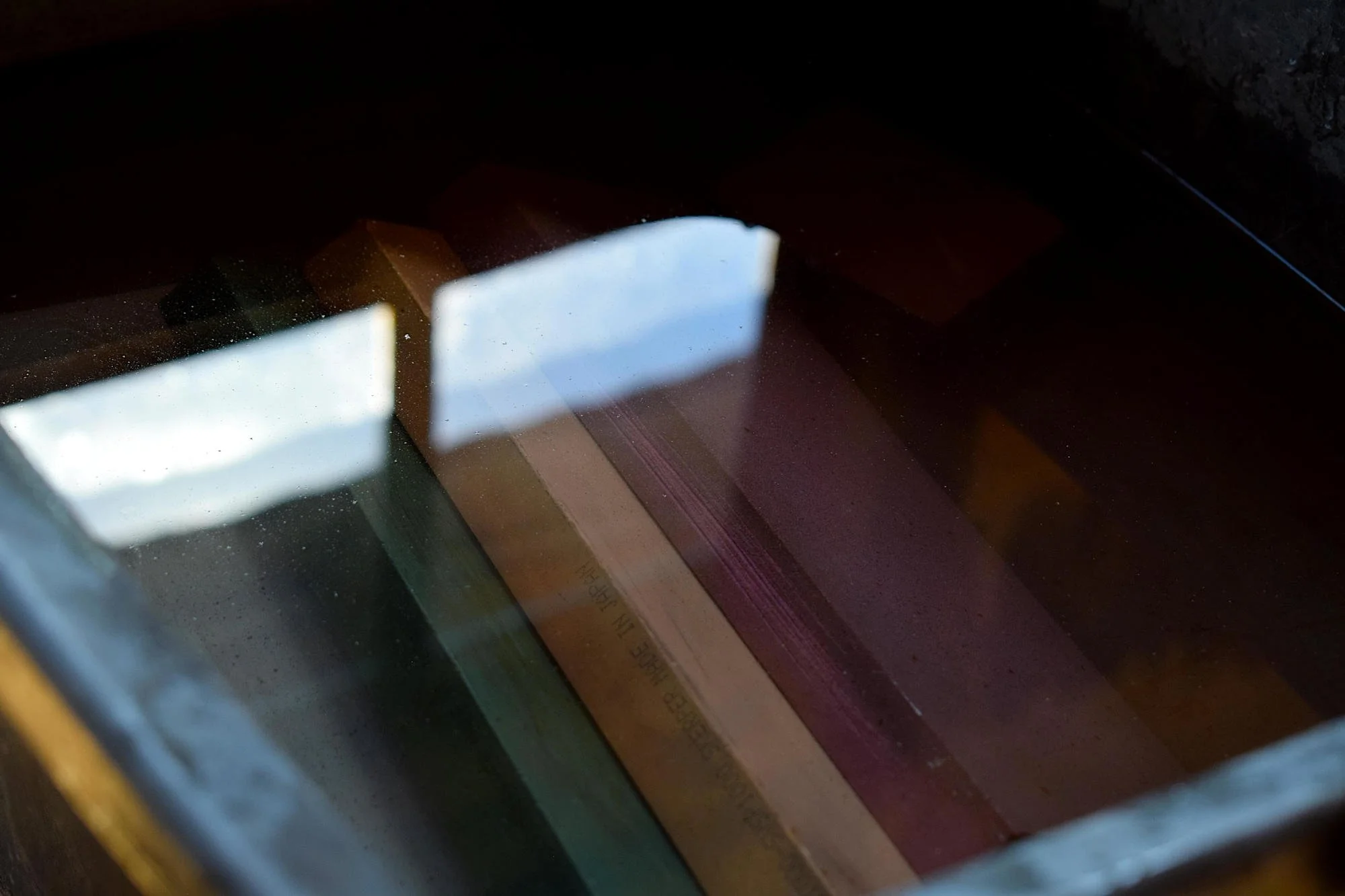
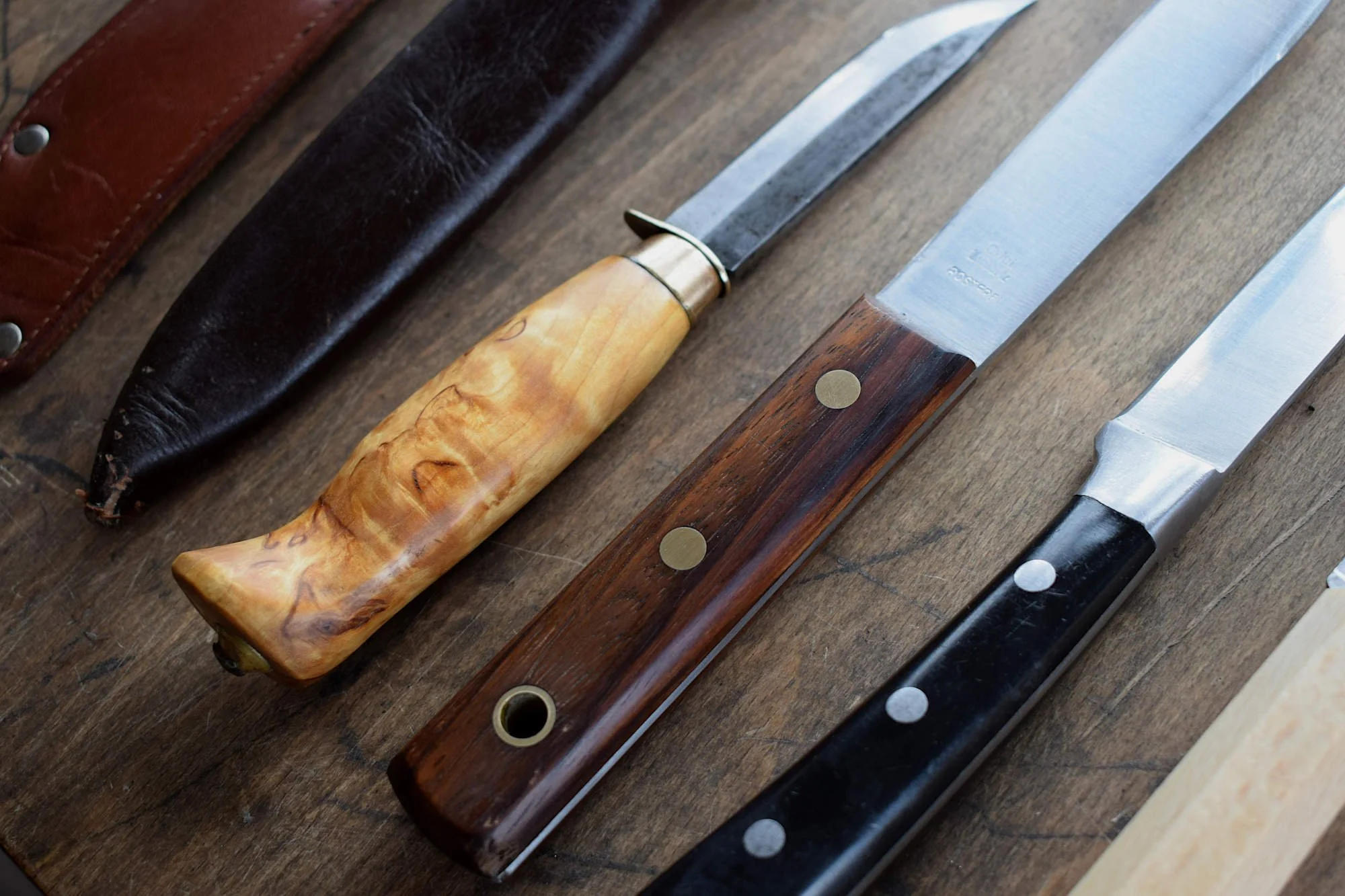

-
Recommended reading
If you are a beginner Blacksmith/Bladesmith, or just curious, here is a selection of Books that I have found to be of great use, aesthetically wonderful, and interesting.
Knife - Tim Hayward
The Complete Bladesmith - Jim Hrisoulas
Master Bladesmith - Jim Hrisoulas
The Craft of the Japanese Sword - Kapp, Yoshihara
Arms and Armor - Carol Grafton
Practical Blacksmithing - M.T Richardson
Blacksmith - Alex Pole




